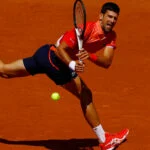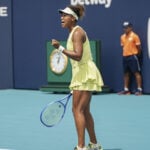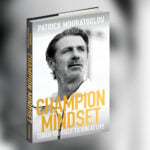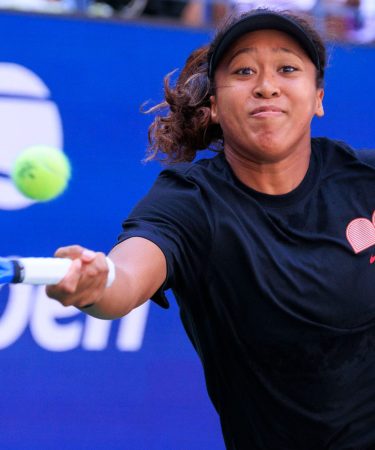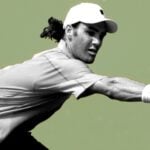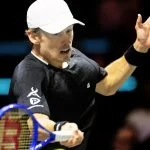Mouratoglou on his book Champion Mindset: “Ten lessons to achieve anything you want”
Patrick Mouratoglou hopes to create achievers through his new book ‘Champion Mindset: Coach Yourself to Win at Life’
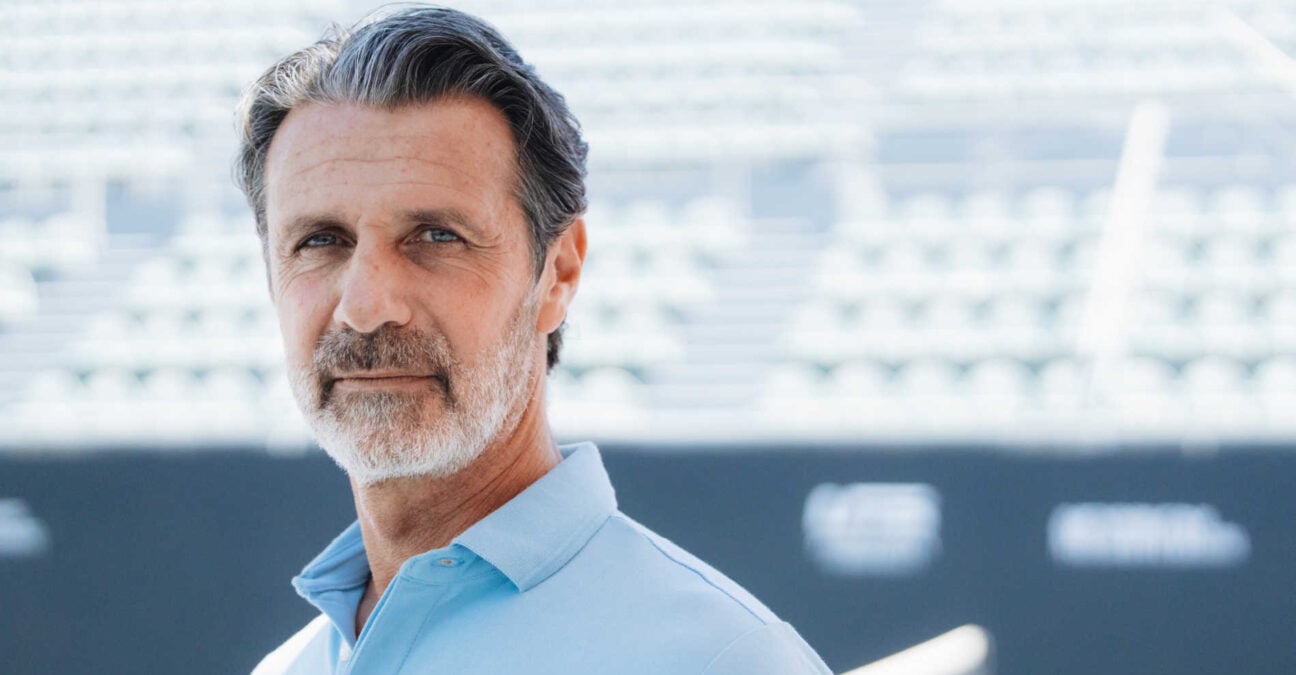 Patrick Mouratoglou, portrait 2025 | © Cédric Rouquette / Tennis Majors
Patrick Mouratoglou, portrait 2025 | © Cédric Rouquette / Tennis Majors
Patrick Mouratoglou‘s new book Champion Mindset: Coach Yourself to Win at Life is out now and the famed coach, also co-founder of Tennis Majors, hopes to create achievers through the publication.
Available now, the book contains lessons Mouratoglou has learned in his 30-year-long professional journey, which has seen the Frenchman work with the likes of Serena Williams, Naomi Osaka, Simona Halep, Aravane Rezai, Grigor Dimitrov and Holger Rune and create one of the leading tennis academies in the world, the Mouratoglou Academy.
Mouratoglou suggests his upcoming work is a toolbox for success, capable of making readers self-sufficient to coach themselves to their desired glory, no matter the scope of their ambitions.
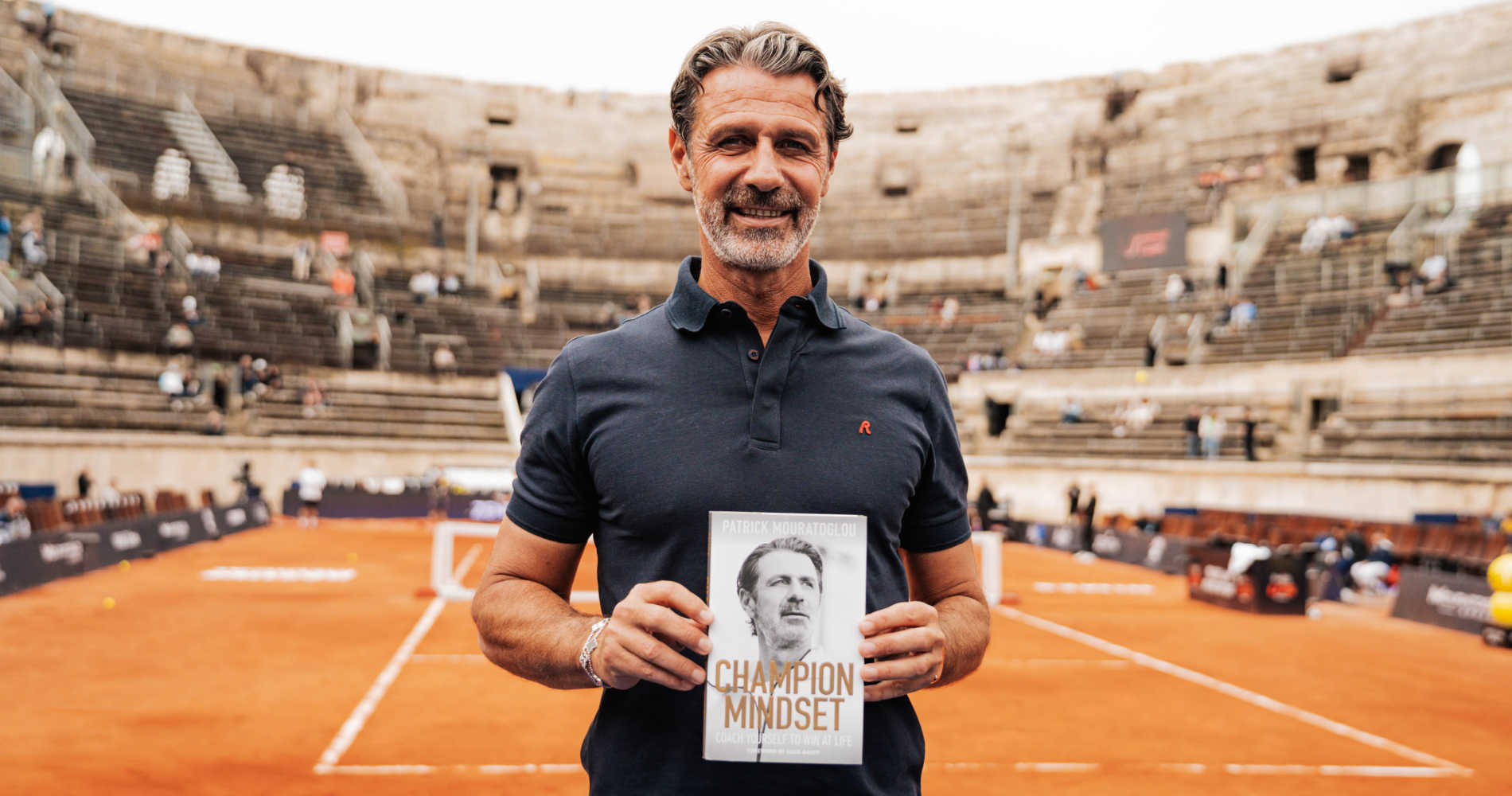
Patrick, before we go deep inside your book, "Champion Mindset", let's talk about the recent Sunshine Tour for Naomi Osaka. It started with a surprising defeat against Camila Osorio at Indian Wells. And at the end, a huge match against Jasmine Paolini in Miami, fourth round. What’s your take on these two tournaments?
Patrick Mouratoglou: Globally, the Sunshine Tour for Naomi was good. I’m not talking only about results, more about the way to bring her back to the top of the game, potentially, because that’s the goal. The first tournament, of course, Indian Wells, not in terms of results. But I think it was this match was important. Sometimes, you know, you have a defeat that is very key. And I always say that the defeats are sometimes more important than the wins. Of course, you want to win and you cannot be happy with losing, but losing a match can help people realise things, find their way. And I think there were so many lessons to take from that, it really helped Naomi understand a lot of things in about her game, about her practices and stuff like that. So I think it was very positive.
After that, we had great practice sessions, very, very, very interesting in terms of building her back. And I think the Miami was a good tournament, not as good as expected, because when you lose in the third or fourth round, you cannot be happy. But, a lot of the mistakes you did in Indian Wells, you didn’t do in Miami. Most of them, she fought extremely hard. She found solutions. She did what tennis is about: problem solving, in a few matches that were tight.
And she was able to play at a very good level against Paolini. I think the match was very close. The level of both players was amazing in that match. I think Paolini played, probably for me, the best match she played this year, and she played two Grand Slam finals last year. At the end, Naomi, won more points than her opponent, just to show that the match was really tight. On the big points, I think Paolini has been better. So she deserves the win. But it’s also a lesson.
Again, progressing in tennis is about learning lessons from what’s happening. When you win, there are lessons. When you lose, there are other lessons. And if you really understand and grow from the lessons, you can improve really fast. And it’s always positive. Of course, if we played better in Indian Wells, it would have been even more positive. But I think this match probably will be a key moment in this year for Naomi, I think, because she was able to understand a lot of things and made a lot of changes after that.
When she talked to the media, she highlighted the fact that she has understood that even she didn't play well, she could win. If she fights, she might find a way. This attitude is something she might have lost after giving birth, that’s what we understand. Do you share the same point of view?
Patrick Mouratoglou: Of course, I share that point of view. If you look at the top professional players, they play great between five and ten matches per year. They’re not going to lose all the other matches when they don’t play well. So that’s one of the key of this sports is to go over frustration when you don’t play well and understand how to win in your bad days. There are many bad days and it’s fine. And that’s what the top champions are able to do. They’re winning most of the matches even when they don’t play great tennis.
I don’t want to say she was intolerant. I’m saying the match against Osorio… Osorio maybe hit five winners the whole match and won. It is not normal. When you don’t feel the ball, when you make too many mistakes, you have to find other ways and at least engage a fight. If you make an unforced error after the first or the second shot, too often there is no fight. So: engage the fight. And maybe by engaging the fight, you play better and better. Probably you’ll find your game.
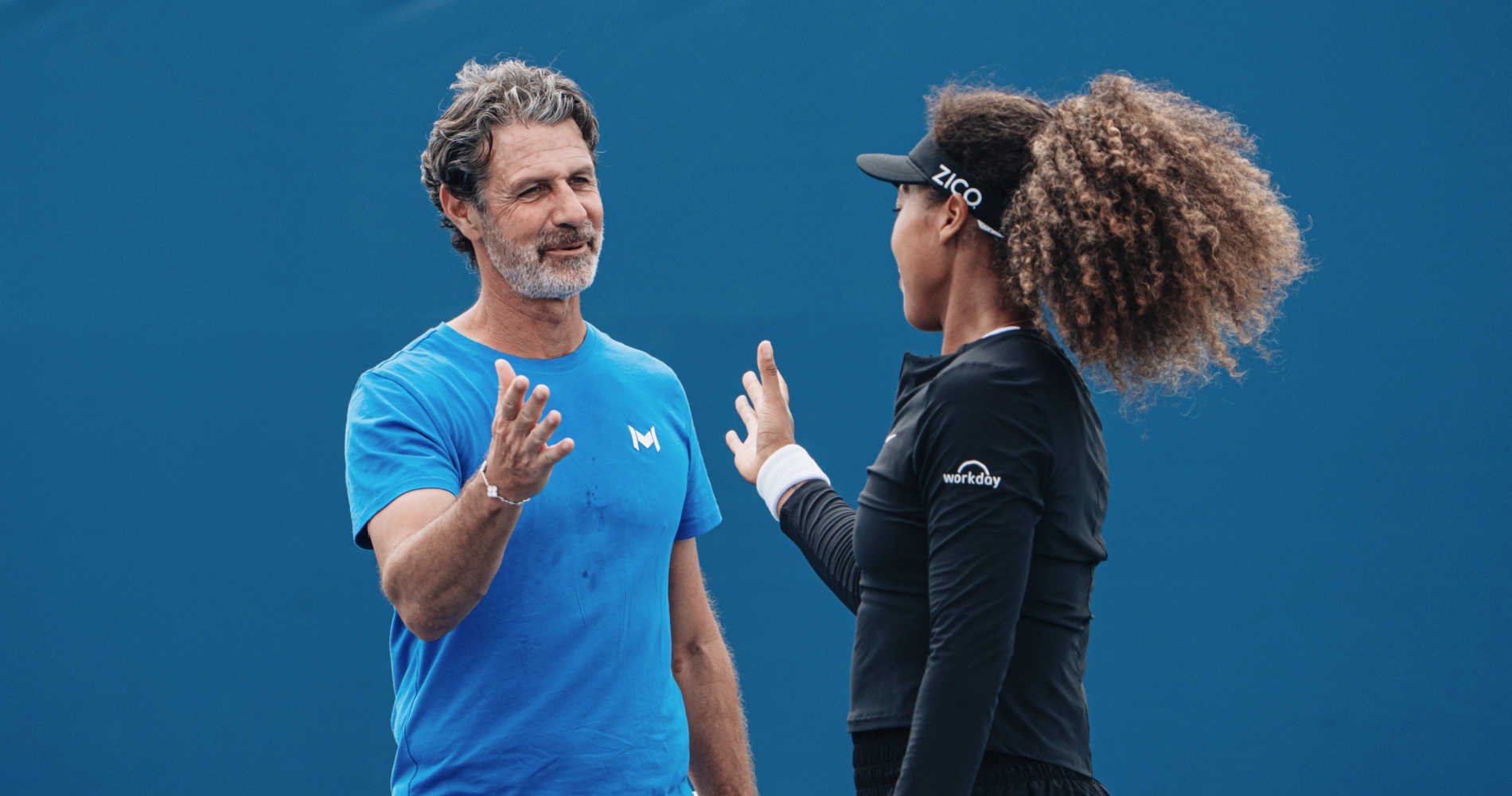
And on the physical side, she had three retirements since you work with her, two this year at Auckland and then Melbourne. Is it behind you?
Patrick Mouratoglou: For Naomi, it was difficult because she had a very difficult year in 2024. She lost a lot of matches, then she had a lot of injuries after that. You can lose your way easily when things happen like that. And my job is to put her back on track, with the right mindset, whether it’s when she plays a match or when she’s practicing. And I’ve seen that in a lot of top players in the past. When we started in September 2024, she started to play really much better. It was important to help her find back the right mindset. And I think, again, this defeat against Osorio helped her a lot to go back to the mindset that she needs to have to progress and get ready to play a top tennis again. And I think we’re getting there.
In Miami, yes she didn't retire and even she appeared good physically. She shared her views on the fact that she felt differently, maybe the best for four years, what did you change?
Patrick Mouratoglou: What Naomi has been doing since her last injury, that was in the Australian Open, is spending a lot of time doing prevention. Reinforce all the zones that were not strong enough, and do a very intense, physical work, whether it was at the physical fitness sessions or on the court. We went much higher in terms of intensity during the practice sessions. And I think it paid off very fast because in Miami, she had three very long, very physical matches. Didn’t get any injury. And when she went out of the matches, she said to me, ‘I feel I could go on playing!’ So that’s why she probably said in the press conference that she felt really good physically. I think she’s currently in a good shape. And I think, for clay, she will be even stronger.
In the past, she didn't have that much success on clay and grass. She was perceived as a hardcourt player. I can guess this is not the kind of mindset you like. So can Naomi succeed on clay and grass?
Patrick Mouratoglou: Yes she can. I think she was really a hardcourt player, she won four Grand Slams, all four on hard. I don’t think she won any tournament in her life on clay or grass. And again, very successful on hardcourt. So she was and she will always be a great hardcourt player, but I think she needs to understand the differences between the surfaces by experiencing it. So that’s why we decided to start the prepareation early. We’re going to start in a few days. Already, on clay, because I want her to get used to the surface and get very comfortable there.
I don’t see any reason why Naomi wouldn’t play good on clay or grass court. She has a lot of qualities in her game to do that.”
So I think if we go early enough and we’ll do it and spend enough time on the surface and be feeling great physically, also to be able to be more patient when it’s necessary, especially on the clay, then she’ll be able to perform. I don’t think she has a mental barrier. I think she just needs to understand better and spend more time in both of surfaces to feel more comfortable.
Let's talk about the book, Champion Mindset. Direct question as a start : if I read this book and follow the guidelines, can I feel like I was coached by you?
Patrick Mouratoglou: The whole topic of the book is not to be coached by someone, but to be coached by yourself. And the goal when I wrote this book was to help people be their own coach, like I did when I was young, with myself, which took me completely out of an incredibly bad situation. And yeah, I cannot say that people are going to be coached by me because coaching is knowing the person. I don’t know the readers personaly. I just wrote a book. But again, I think the goal is that this book gives people the tools to be able to coach themselves to their own success, whatever they want in life, to motivate them and give them the keys to coach themselves in order to achieve what they want to achieve in life.
What's your definition of success and ambition, and how can you be helped by this book, if your ambition is, let's say, not to beat Novak Djokovic’s record or to be a billionaire? I mean, what's the safe level of ambition that this book can support?
Patrick Mouratoglou: There are no little ambitions. Everyone can have the ambitions they want. I’m not judging any ambition. I’m just saying: whatever your ambitions are, the goal is to give you the courage and the tools to be on the road to reach your ambitions. And you know what? Some people have ambitions here. And by achieving success, they just constantly have higher expectations from themselves because they realise how good they are, which they can’t even imagine when they don’t even reach small ambitions. So, it’s not about tennis. It’s not about how high your ambition is. It’s just about what you want to achieve in your life on the personal or on the professional level. The book will help you do it by giving you the tools to coach yourself from being where you are to being where you want to be. Tomorrow.
Is it easy to know your own ambitions, goals? There are a lot of people who are not clear about what they want to achieve.
Patrick Mouratoglou: Yes a lot of people don’t have clear ambitions, but there are things they are dreaming of.” There are things “I wish I could do that, I wish I could do anything or be that kind of person tomorrow”. Maybe they don’t verbalise it as an ambition or a goal, but it is inside them. They need to dare. And in order to dare, they need to build their confidence. Because you cannot dare doing things when you’re not confident. And again, the goal of the book is first to help you verbalise what you wish for yourself. And ‘what you wish for yourself’ can tomorrow become ‘what you want from yourself’. And wish or want a huge difference. You can want something for yourself only if you believe in yourself and your ability to reach that something otherwise is going to stay a wish. And if it is a wish you aren’t moving. And when you’re not moving, you’re not achieving anything. It’s not a question of being big or small.
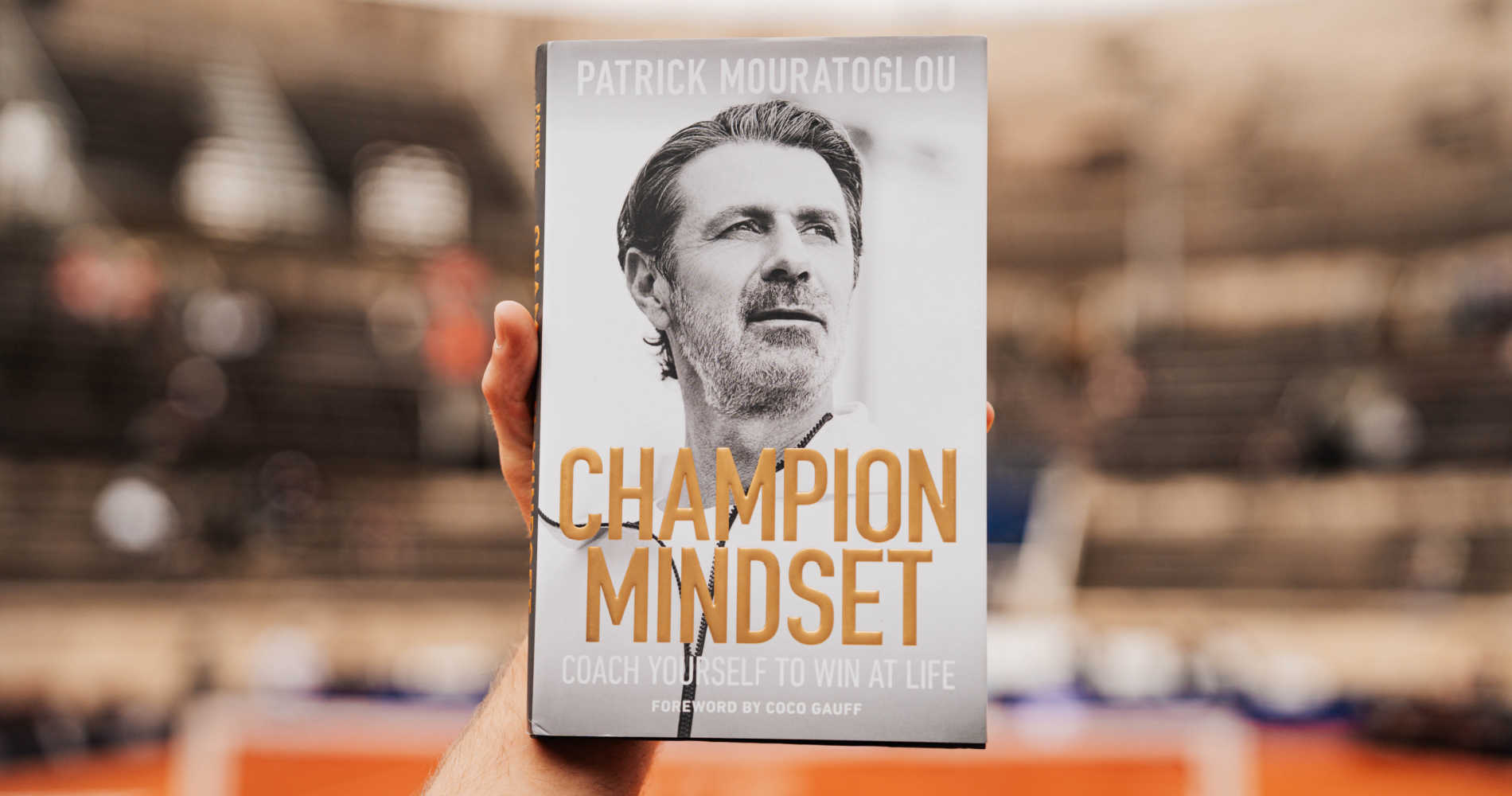
If you're talking about, putting yourself in motion to reach your own goals, people you can find excuses to not start a journey. Based on your experience, what are the three common excuses that one could find not to start their journey?
Patrick Mouratoglou: If you ask me the three most common excuses that people generally find to not do what they should do in order to get to where they want to be, I would say, the first one that comes to my mind is, ‘I don’t have time.’ My answer to that is you have a certain number of hours during the day. You use them to do what is your choice. Yeah. Of course, if you decide to do something, you decide to not do something else. And the question is, ‘What is important to you?’ Most of the people do hide behind it… ‘I don’t have time to do it.’ No: you choose to do other things rather than this one. That’s the reality.
The second one is, ‘I cannot do it, it’s too difficult for me, I don’t have the capacity to do it.’ It’s an excuse because people can do anything. That excuse is a consequence of their self-esteem which is too low. That’s why it’s important to build self-esteem. And that’s an important chapter in the book, ‘How to build your self-esteem’. Not to think that you can’t.
And the third one would be, ‘I don’t have the logistics or I don’t have the money or I’m not in an environment that allows me to do that.’ I have the strong belief that everything depends on us. Everything. Even people’s reactions to what’s happening to us, you can change it. You can change anything. So, yeah, of course, if you have three jobs, maybe it’s difficult to do something else that you need to do in order to achieve something. Maybe if your dream is, for instance, to work in the music industry and you are an accountant in an insurance company, you know nobody in this world. So this is the kind of excuse, like, ‘I’m not in an environment that allows me to do it.’ Yeah, but you can meet the people. Everything is possible. You need a strategy. So these are excuses because people just see the situation as something that they can’t do, rather than thinking how they can do it and make a strategy to do it. Right.
in my book, I get rid of all the excuses and I teach people how to build their confidence and how to make a strategy in order to achieve what they want to achieve in life.”
What are the conditions one has to follow as an individual to pretend that one can coach oneself?
Patrick Mouratoglou: Well, first of all, if you want to coach yourself, you need to really want to do it. You need to think: “This is where I am now, this is where I want to go, this is what I want to achieve, I can do it”. And that’s also the purpose of the book is to make you believe that you can achieve it. Taking many examples of people not doing it and being able to do things afterwards. So first, you need to believe and want. That’s the base. If you don’t really want it, you’re not going to do it. If you don’t believe you can do it, you’re not going to do it either. So that’s the first two things.
Then after, you need a plan and one of the purposes of the book is to help you understand the ten keys that are absolutely necessary in order to achieve your goals. Of course, the plan has to be specific for everyone, but you basically have all the bases to establish a plan for yourself.
And then, of course, I wouldn’t say it’s discipline. It’s one of the chapters of the book is just wanting to do a little bit better than you did the previous day, every single day. And again, we’re not talking about big things. But once you have those things you want to improve on and a plan to get there, just do a little part of the plan every single day. We cannot call it discipline. We can call it, just wanting to do a bit better every single day of your life. But that’s how you can coach yourself.
Is it a global methodology or can I pick here and there, lesson three resonates with me. How could I consume that book?
Patrick Mouratoglou: This book and these ten lessons… it’s ten lessons to achieve anything you want to achieve. Everyone is free to use all the ten lessons. Maybe some people already follow some of them. They’ll find some others to add. Maybe one of the ten lessons will make a huge difference compared to another one. But ideally the goal is to follow the ten lessons. But yes, when people read books, sometimes they pick up things that they think is more useful for them. I mean, if it works for people, that’s the only goal is that it’s useful, helps people, and it helps people achieve what they want to achieve.
Tennis is supposed to be a wonderful school for life… Maybe more than other sports. Is it fair to say that? What's your take on this assumption?
Patrick Mouratoglou: I don’t want to talk about other sports because there is no other sport that I know as well as I know tennis, but sports in general is great for helping people achieve things in life because it gives you lessons every day. But if you go to tennis, not only playing but also wanting to follow the lessons is even stronger. For young people who are going to school every day and, you know, have, ambition for themselves in the future to play tennis at a good level every single day, it teaches them so many values that are extremely important, that actually most of them are in the book. It teaches you ambition, discipline. Being able to look at yourself when you have a problem and solve it.
I mean, it’s fantastic to learn, because, you know, all the parents want their children to instill values for their life. But this is theory. When you play tennis at a good level, and you wake up every morning, you go to practice and you work hard and you face all these difficulties that you need to solve. These values, you not only know them, a theory, you have to put them into practice every single day. I think, to build the character of people, tennis is the best sport in the world.
Would you say it's hard or easy to follow the guidelines of the book?
Patrick Mouratoglou: I think it’s not that easy. Of course not. But I think you cannot achieve things that are great for you easily. That’s why I tell my players all the time, ‘You think it is going to be difficult?Yeah, it’s going to be difficult. But you have high goals. If it was easy, everybody would do it’ . So it’s not easy. But I think the most important thing is to have a plan to be clear about what you’re supposed to do, and maybe have a little push to start and do a little bit every day. This is the key. And that’s my first goal when I wrote this book is to help to give a little push to people to start, and for them to know that just doing a little bit better every day will bring them a long way. If they follow this, if they follow this plan.
When you start a move, you don't know what to expect. You feel that it might be good for you but you never know exactly what's going to happen? So, what can you guarantee to someone who would read the book? What's your core promise?
Patrick Mouratoglou: The only thing that I promise to people who would read the book is that they will have a plan to know how to reach their goals, because I’ve done it for myself, because I’ve done it with so many people and it worked every time. So I know this works. That’s the thing I guarantee. What I don’t guarantee is that they read the book and then they’re going to start and then they’re going to do it. This is up to them. But I mean, everyone has a responsibility.
my responsibility was to give keys that worked, will work. because I’ve done it so many times. I know it works. So that’s the promise of the book.”
Precisely how and when did you understand that what you learned first about yourself, and then about tennis players as a tennis coach, had much more power than just just winning matches, tournaments, which is already huge for a tennis player that have ambition? When did you understand that what you lives could be lessons to achieve more powerful things?
Patrick Mouratoglou: I realised that my methodology that I use for players applies to anyone because I realised that tennis was just a tool. And basically I was more working on developing the people’s mindset and their personality than their tennis. The tennis was a consequence of the rest. And then I realised that, you know, whether it was tennis or business or anything in life, the rules are the same and I can do the same. I can help people the same way.
And these rules… if you had to sum them up, just to give us a taste, how would you do that?
Patrick Mouratoglou: If I have to summarise the rules, I say: there is a mindset that is producing results, that is producing growth. Most of the people don’t have the right mindset and the mindset they have, doesn’t allow them to grow and don’t allow them to reach goals. So basically the book is helping people modify their mindsets when it comes to achieving.
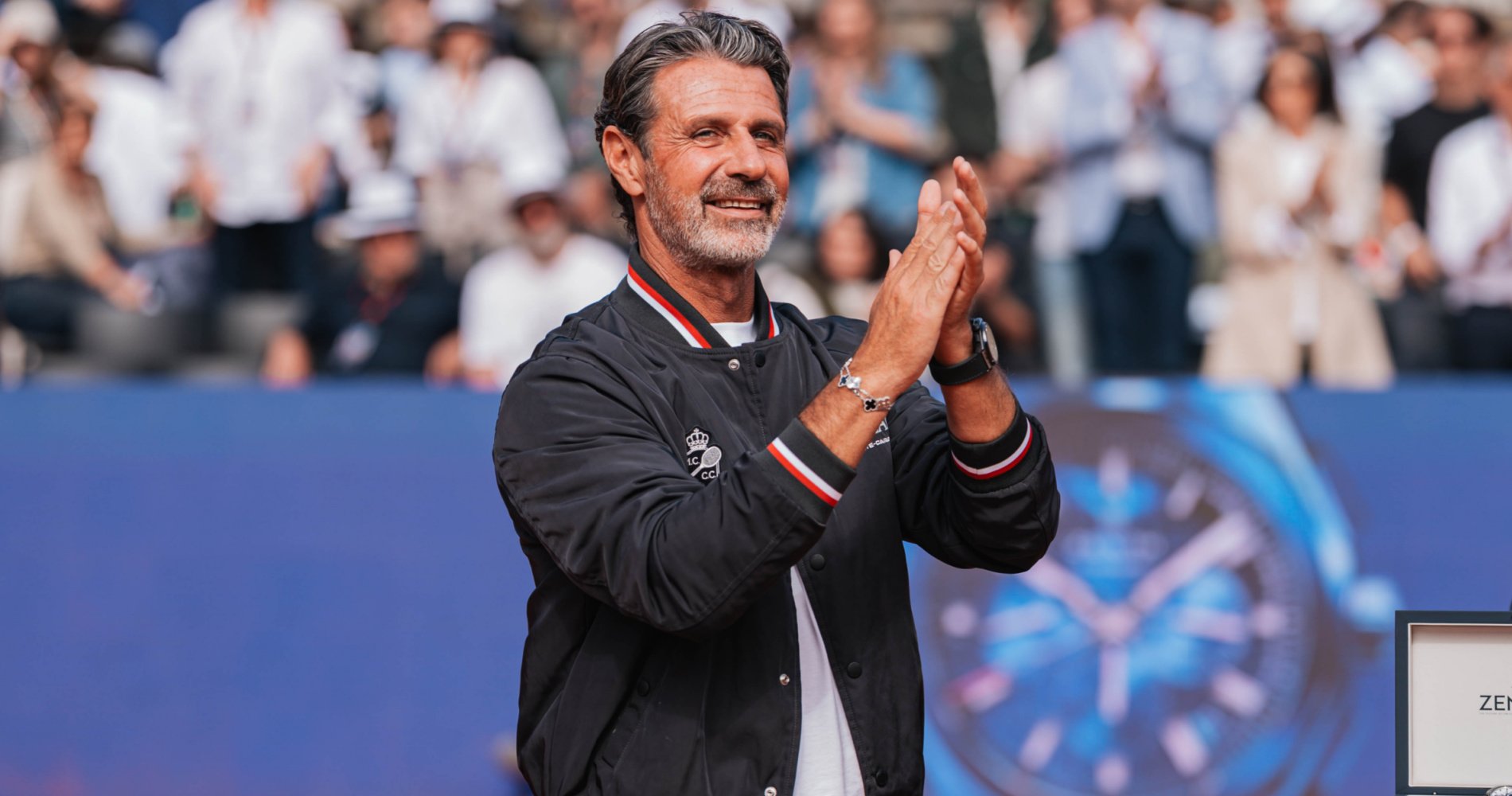
Who are the three players who taught you the most about yourself, to understand yourself better?
Patrick Mouratoglou: The three players that taught me the most. First it was Irina Pavlovic, because she taught me that I could control my emotions to reach a goal, which I didn’t know before. I was very emotional. I realised how important it was to control my own emotions, and it helped me also in my personal life.
I would say the second one is Aravane Rezai, because I realised that I was driven to a point that I could be on top of everything she was doing and controlling everything to have the success, which was difficult for me because I’m not that type of person. I realised I could change my personality for the work in order to get the results that she wanted. And that was my job to help her reach her results. And I realised that I could be so focused for a long period of time, taking care of every single detail for her to succeed, whether it was for the diet, for the training, for everything. I was also able to live with her parents in the tournament, which was difficult because it’s a completely different culture from mine. I realised how motivated and determined I was for my job.
And the third one is Serena Williams, of course. I had to deal with enormous pressure that I put on myself by telling the press, when I started with her that, ‘If she wouldn’t do much better than what she did previously with me, then I would be a failure, and I would fail.’ So the bar was quite high. She had 13 Grand Slams. And I said, ‘With me, she has to win more, stay longer number one. And this is what I need to achieve.’ The pressure was enormous. It was Serena, all eyes were on us and on her results. And, I saw that I liked pressure, I really enjoyed having that pressure. It gave me a lot of determination to succeed, to feel that pressure. So I didn’t know before how much I liked pressure. But since that day, I really know it makes me better.
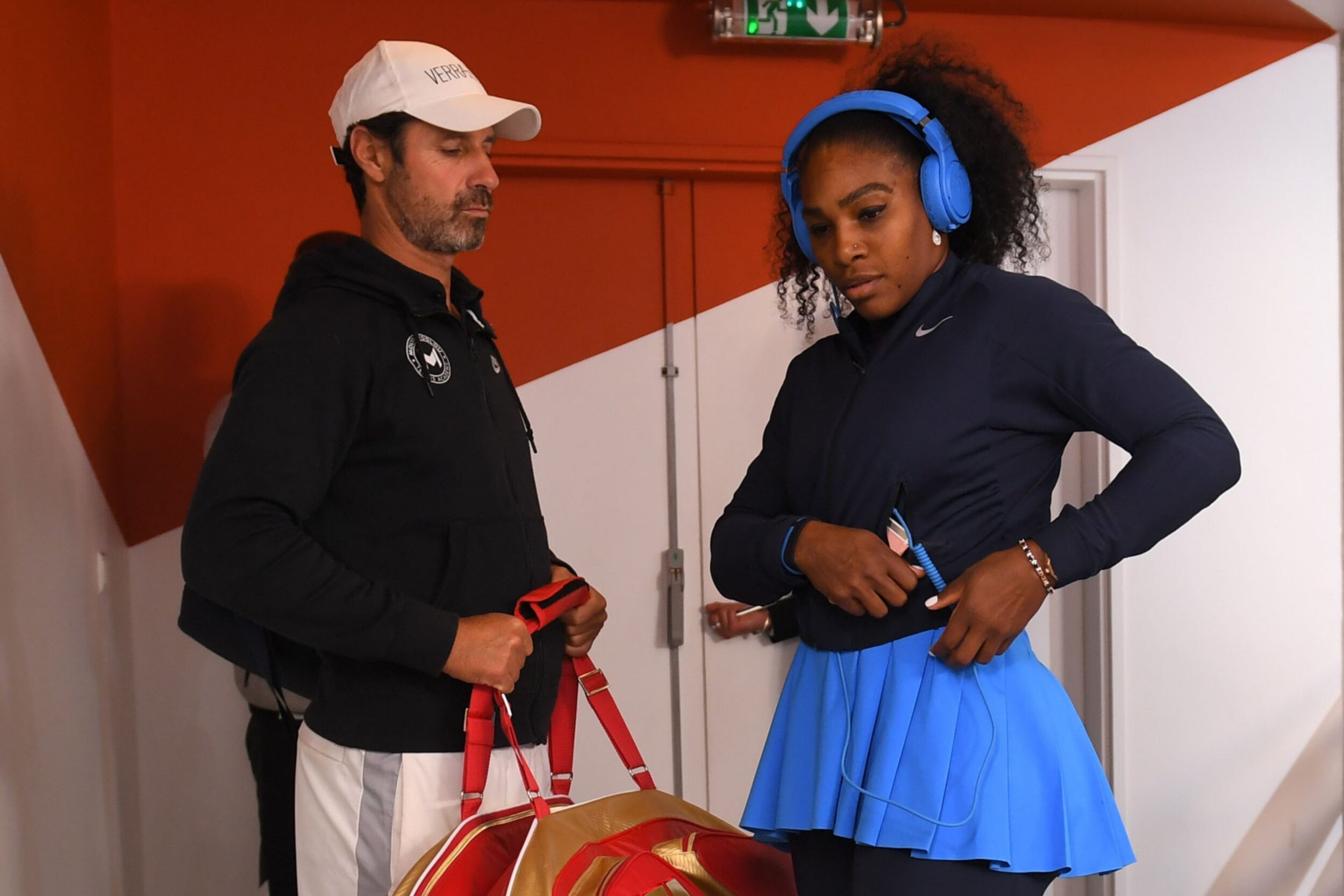
You always say that emotions are our fuel, but you highlight the fact that we shall take emotion out of the process when you want to reach a goal. How do you combine what can look like contradictions?
Patrick Mouratoglou: Of course, emotion is a huge driver. People watch sports because they want to feel emotions. They watch movies because they want to feel emotions. They take drugs or alcohol because it brings them emotions too. It’s an artificial way to get some but people do that as well. So emotions are huge drivers in our lives. I don’t want to live a life without emotion. If I don’t have emotions, I’m a robot. So I have nothing against emotions and I actually love emotions. I love the enthusiasm that it brings, the excitement, and everything.
There are just two types of emotion. There are positive and negative emotions. Positive emotions are very necessary. Sometimes they can be counterproductive because it can lead you to be overconfident. In that case, you can make mistakes, but generally speaking, nothing against positive emotions. It’s the negative emotions that are dangerous. They’re not always dangerous, but dangerous most of the time. Why? Because when you get negative emotions, the reaction to that will not be thought, will be purely emotional. It can be revenge, it can be the need to put the frustration out. And in general, that’s where you make the mistakes.
You know, you’re going in fights with your boyfriend or girlfriend or wife or husband, you’re going to say things that you’re going to regret, you’re going to act in a way you’re going to regret, you’re going to take wrong decisions because you’re under a huge emotional state that is so negative that you will fight to get out of it. So this is where you have to be extremely careful. This is where you need to separate from the emotion, which is a very difficult to do. Requires time in general, good breathing and asking yourself the right questions. And this is, you know, all the stages I explain in the book how to get rid of your negative emotions before acting, whatever it is, taking a decision or reacting to someone.
Would you say that we have to constantly be in control of our emotions?
Patrick Mouratoglou: We have to be 100 percent in control of our emotions, and especially when it comes to negative ones. The positive ones sometimes can make you feel indestructible and have dangerous behaviours like driving like crazy. Yeah, I mean, basically even positive emotions at a certain stage can lead you there. So it’s important from time to time to separate from your emotions, to start operating with your brain rather than your emotions. But again, we need emotions for living. We all need this. Love is an emotion. Enthusiasm, excitement. You know what’s life without that?



